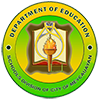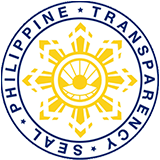Fernand Kevin A. Dumalay
Principal I
Longos Elementary School
The Department of Education remained true to its commitment of providing quality education despite the challenges of time – even in the midst of a pandemic. It has formulated clear guidelines and reorientation on the available teaching and learning delivery modalities and provided capacity-building initiatives for their effective implementation. As a result, public schools around the country are able to continue serving their educational communities while looking for partnerships to close the gaps. In my observation as a school leader and a teacher, I have to admit that face-to-face classes are much better since teaching and learning happen inside the classroom which gives teachers opportunities to better mentor and assess their students since they are physically present in the room. The students are also well guided because there is direct interaction. They can learn for free in the sense that they need no gadgets or internet connectivity. They are also more focused since no household chores and other distractions are found in the classroom to interfere. All these advantages are compromised with distance learning. Although teachers and students can still facilitate teaching and learning through online classes and self-learning modules, quality is not ensured since cheating as we all know become easier to do and distractions are inevitable. We are no longer even sure whether our students themselves answer tasks and activities. I can say then that our current setup is a band-aid solution and is better than stopping the delivery of instruction. However, if this is prolonged due to the health crisis, I do not think we will be able to produce the kind of graduates we aspire to have.
Since the K to 12 Curriculum is designed for face-to-face classes, its adaptation to distance learning delivery must be carefully and critically revisited. Some of the MELCs felt a bit disorganized based on my experience as an instructional leader which is somehow understandable because the department had to act quickly and improvise. But I hope our education leaders are also open to feedback coming from the field – from our teachers – so that these curriculum gaps will be addressed based on the first year of its operation. As regards the implementation of Distance Learning Modalities, it will be more effective if the necessary resources (gadgets, internet, etc.) were provided not only to teachers but also to students. For those who chose modular distance learning, DepEd should have provided standardized trainings for teachers, parents, and students across the country so that they truly know what to do. Some of the modules seemed to lack proper quality assurance. It would be better if the department would hire a publishing house and utilize standard books/modules rather than asking teachers to be writers – which require different sets of skills and knowledge altogether. Everything was rushed. But what can we do? Nobody ever expected this pandemic to happen, and proper planning can only be executed if there was enough time – which we did not have.
As I have mentioned, some of the MELCs may be revisited for improvement and it is good to know that the Department is presently doing it. The current set of essential competencies and the modes of instruction (most cannot afford online distance learning) may not be enough to bring out the best in every learner because some competencies are redundant while some areas are lacking. If this continues, our students may not become globally competitive since this kind of setup provides them limited opportunities for them to demonstrate the content and performance standards, which is very important in the overall learning experience of the learners.
These predicaments gave rise to the idea that the Department must think of ways forward and brave the challenges in the education sector; hence the introduction of Learning Recovery Plans. DepEd acknowledges the need to reassess where we are and to redesign pedagogical strategies and interventions to address the current learning gaps and losses brought by numerous factors exacerbated by the public health emergency. Following the expansion of face-to-face classes, all regions, divisions, and schools are mandated to craft frameworks that aim to recover unacquired competencies before the new school year starts. This is quite different from the regular remediation programs since the plans are enhanced and more data driven. In addition, the plan comprises of three major phases from School Year 2022 to 2024 and beyond where long-term improvements in student achievements will be accelerated. Schools are also being encouraged to innovate and avoid repeating measures that did not work in the previous school years. In our division, our learning recovery plans are aimed at addressing academic needs in the following learning areas – literacy, mathematics, and science. The decision is based on the data acquired from the submission of the different schools focusing on various key stages. Schools are expected to address the learning gaps and prepare learners for the next level of education. Through the outstanding leadership of our current Schools Division Superintendent, Dr. Carolina S. Violeta, CESO VI, and Assistant Schools Division Superintendent, Dr. Jerry D. Cruz, CESE, together with the education program supervisors, all the public schools in our division are determined to realize our shared vision. The challenge has been wholeheartedly accepted with the hope that all these initiatives will enable everyone to catch up and accelerate their learning.
On one hand, it is just the beginning of the real journey towards relevant education reforms. This is a huge step, yes. But as our education landscape changes, our ways must also evolve. Additional content and assessment tools to really measure their learning must be established, and if bridging programs are found to be necessary based on the results, then these must be provided. The identified MELCs seem to be enough to finish basic education but are not sufficient to face the demands of the world. Continue reviewing the curriculum. Devise more ways to let students demonstrate both content and performance standards regardless of modalities. I firmly believe that with our collective effort, as ONE DEPED, it can be done.


